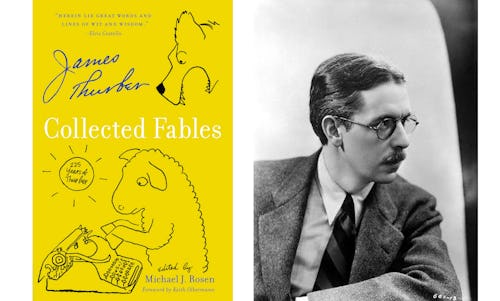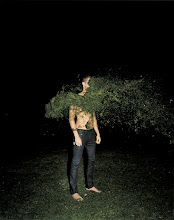 Rapping With A Queer Twist
Rapping With A Queer Twist
Gay female rapper Benni E.’s success is imminent.by Bill Chenevert
The 941 Theater, a BYO venue on North Front St. in Northern Liberties, is filled with girls looking like boys and boys dancing like girls. Twenty-somethings with beards and decked in plaid dance like sissies. Dykes in tank tops and pompadours rub up against their girlfriends. They’re smiling ear to ear and bumpin’ as Sgt. Sass drop their latest EP,
Body Rock, with the help of their girl Benni Emilia.
If
Sgt. Sass is the beating heart of Philly’s queer hip-hop scene, then
Benni E. is the blood pulsating through it. The 25-year-old rapper is here, she’s queer and she doesn’t give a fuck about the homophobic and mysognistic attitudes that characterize most big money rappers. She’s on a journey to become the first gay rapper to hit big.
“I want mainstream success. I’m talkin’ about breakin’ barriers,” says Benni.
The South Philly native sees the power in music—just rapping about gay life becomes an act of protest, musical activism—and she won’t let the masculine posturing of the rap game, claims of riches and Cristal-fueled mega club-bangers keep her at arms length.
“Right now, going mainstream and being a queer hip hop artist are exclusive things. I think that’s why we push ourselves and we push our envelope because it shouldn’t be.”
“Gay boys, making hip hop is a revolutionary act,” raps Deep Dickollective. “Gay girls, making hip-hop is a revolutionary act.” Revolutionizing hip-hop is what Benni hopes to accomplish with her latest mixtape,
Microphone Influenza. Some of the perfectly produced and studio-polished gems from
Influenza were the tracks that floored at 941: “I’m Good,” “Sickest Emcee,” Girlz to Church” and “Fashion Scene” to name a few.
Like many queer rap artists including Sgt. Sass, Benni is taking the hip-hop’s homophobia and spinning gold out of hate. Consciousness doesn’t have to mean boring. Gay artists intend to take conscious rap where Common and Talib took it, but with more color and fierceness. Benni’s trim head sometimes gets covered in a colorful bob wig or with just a fresh New Era hat, stickers on and everything. Fashion is actually important to the Art Institute alum. “People judge you before they know who you are,” Benni explains. “Fashion is a way to make a statement.” So she rocks jeans, high-tops, and fly printed T-shirts, not the dresses and skirts her Panamanian mom expected her to wear as a kid. That’s just the packaging though; the message from Benni is the real product.
OutHipHop.com owner and editor Camilo Arenivar is launching his own LGBT indie hip hop label and has his eye on Benni. “Her flow is just incredible. Her stage presence and her delivery, she just got up there like a class act as if rapping and rhyming was like breathing to her,” he commended. “I think she has an appearance, an appeal that will work. She’s fire.”
Philly could be the home of the first queer rapper to achieve big things and take hip-hop to a new and exciting place.
Benni’s been proactively affecting change at large and in Philly for years now. She began reciting conscious poems and lyrics, which she first performed at Duiji Mshinda’s Poems Not Prisons in West Philly at the age of 20. She’s marched in rallies for peace and queer rights, and recently completed work with City Year, a non-profit that’s embedding full-time volunteers in schools as tutors and after-school care providers.
But at the end of the day, says Benni, “the pen is mightier than the sword,” and right now she’s focused on the rap game. She recently accompanied the members of Sgt. Sass to San Francisco’s Homo-A-Go-Go, a big gay festival of arts and performance. She met up with Philly’s DJ Bunnystyle, her longtime collaborator and live DJ, and Steven Bloodbath to talk about future tracks they’ll be putting down together. Last week she emceed and performed a short set at local FTM Parker Gard’s ByeBye Boobies Benefit, a queer open mic and performance night to raise money for top surgery. Next week, she embarks on a Boston adventure headlining a queer night at Zuzu, put on by DJ D’hana and Paul Foley, and then joins a roster of performers for Aliza Shapiro’s TraniWreck at the Middle East. She’s busy.
Right now it’s a collection of songs for a mixtape called
The Ninth Oz Child. “I’m breaking away from the party-hearty hip-hop,” she says. It’s a prologue to a future full-length, a testing of the waters to generate press and create more opportunities to get on the mic. It’s going down with the help of Neal Dexter, the RUINIT producer she met through Philly’s Chang Chang, in his Jersey studio. Benni’s not into playing to an audience just looking for the next hot electro beat. She’s going to do it lyrically and not with songs about booze, but injustices.
She’s following through on a struggle that began in Southern California in the mid-’90s with queer hip-hop legends Rainbow Flava and Deep Dickollective (D/DC). “People made the way for us like D/DC, Deadlee, Tori Fixx. These cats laid the groundwork and it’s time for us to pick up our weight and do what we’re supposed to do,” she says.
The infiltration of gay rappers in hip-hop is now a multi-city movement with over 100 out LGBT rappers and producers thriving in three primary urban pockets: New York, L.A./San Francisco and Atlanta. “I use hip-hop as my venue as an artist—it’s what I use to get whatever I’m going through in my life out,” says Sgt. Sass’s DaQuan. “I happen to be queer so that’s what I’m gonna talk about.” “Faggot Snappin’” might be the perfect example of Sgt. Sass’ gay ways: “First you gotta limp your wrist with attitude and snap it back,” DaQuan raps. “Flip your hair like you don’t care, roll your back and snap right/ Some don’t like the term I use to label up this brand new dance/ I hear the word everyday, they call me it at every chance.”
Benni’s battle won’t be easy, she’s got two industry strikes against her: Hip-hop continues to take pride in lyrical gay bashing and misogyny. To be a queer rapper reaching for mainstream exposure you’ve got to be pretty damn amazing and Alex Hinton’s
Pick Up The Mic documentary revealed the struggle for gay hip-hop artists across the country. From homo-central New York City to Houston, Texas’ Miss Money, to Madison, Wis., there’s a whole stable of gays, lesbians, trans and bisexual men and women grappling with the crushing truth that they’ll probably never achieve the stardom they hope for.
It’s the reason most queer rappers are content to just play to their own crowd. “Sissies will go buy a sissy record,” says Juba Kalamka of
Body Rock, one of the two masterminds behind Deep Dickollective. With over twenty years of emceeing under his tube dress, he has a firm grasp on what success for a queer rapper means and knows that artists like Benni will be hard-pressed to sell 15-20,000 records, the kind of numbers major labels want to see as proof that you can sell.
Some homo hip-hoppers may be content to dwell in the success of their respective underground cultures, but Benni wants more. “If you make good music you make good music,” she says. “It doesn’t matter what genre, what your background is. If you’re makin’ good music people are gonna support you.”
Benni knows that there’s no money in keepin’ it local and has been able to make a living performing and with Yo Majesty's success, a Tampa, Fla.-born outspoken lesbian trio of rappers, it doesn't seem so far off. Their explicit and often nudity-filled stage performances have been well-received by critics, homos and forward-thinking straights. It’s a spotlight that Benni may be able to capitalize on, though she’s definitely not getting naked. She doesn’t have to. Benni Emilia’s got the goods, the flow, the beats and the charm.
THE REAL DEAL (Look! Comments!).
































